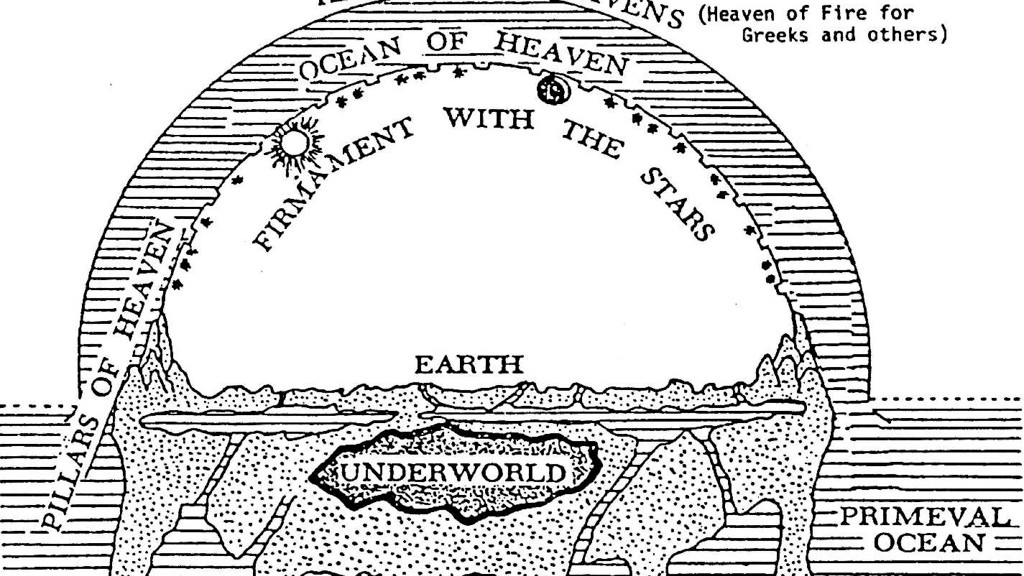Some people who are opposed to the view that justification is by grace through faith in Jesus Christ alone would usually refer to Romans 2:13 to refute this view.
Paul said in Romans 2:13: “For it is not those who hear the law who are righteous in God’s sight, but it is those who obey the law who will be declared righteous.”
Justified by Works
They interpret this to mean that the keeping of the law is required in order to be declared righteous. That is, in order to be justified and get saved. In this case, salvation is conditional. It is dependent on obedience to God’s law. And this verse is a key verse for them. They make this verse the controlling factor in understanding Paul’s letter to the Romans.
Does this verse really support the belief in salvation by works? Does this verse negate the teaching that salvation is by grace through faith in Christ alone? Of course not!
Context: The Jews Were Not Keeping the Law Themselves!
Let’s get the surrounding context of Romans 2:13 to get a better understanding of the issue at hand:
The apostle Paul was actually talking about the Jews in Romans 2 (Romans 2:1, 17; Romans 2:21, 23) and he said that they had nothing to brag about although the law was given to them (Rom. 3:1-2, 27). Their bragging about having the law was useless because they were not keeping the law themselves! According to Paul, the Jews and the Gentiles alike were all guilty of sin. No one was righteous (Rom. 3:9-10,23). The Jews cannot boast that their salvation was secure just because they knew and have “heard” the law. They needed to become “doers” of the law in order to be made righteous (justified).
Context: Gentile Doers Justified, Not Jewish Hearers
The Gentiles on the other hand, although they did not have the Law of Moses and they haven’t “heard” about the law, but when they kept it and became “doers” of the law, they were justified (made righteous) just the same. In other words, between hearers and doers, the doers of the law were justified (Romans 2:13). That is the context of Romans 2:13 in relation to Jews who had the law and Gentiles who did not have the law according to Paul.
Believers are Justified, Not the Doers
But Paul did not stop his explanation in Romans 2:13. He continued and explained further that justification is by faith and not by works all throughout his letter to the Romans and in his other epistles.
While it is true that between doers and hearers, the doers of the law were justified, Paul explained that between the doers of the law and the believers in Jesus Christ, it is the believers who were justified. This is the correct interpretation of this verse if we are to consider Paul’s explanation about Jews, Gentiles, hearing, doing, law and justification altogether.
Righteousness By Faith
This was the kind of righteousness that was made known during his time according to Paul. That began when Christ came. That was the main theme of Paul all throughout and he was quick to add—lest he be misunderstood—that he was not trying to discredit the law nor was he encouraging disobedience to the law.
After that explanation between doers and hearers of the law, Paul concluded in Romans 3:20 , that: “Therefore no one will be declared righteous in his sight by observing the law; rather, through the law we become conscious of sin.” The law makes us aware of sin. Keeping the law is the right thing to do. It is righteous living. But only God can declare us righteous not our good works. It is by and through his grace alone that we are justified.
Conclusion in Verse 20 Not in Verse 13!
Please take note that after what Paul had just said in verse 13, Paul here in verse 20 makes a conclusion that no one will be declared righteous by observing the law. It’s not the other way around. Some people quote verse 20 first and then conclude with verse 13. That is distorting Paul’s context!
Paul declared the very same thing in Galatians: “Know that a man is not justified by observing the law, but by faith in Jesus Christ. So we, too, have put our faith in Christ Jesus that we may be justified by faith in Christ and not by observing the law, because by observing the law no one will be justified” (Gal. 2:16).
Paul explained that since we all sin (Jew and Gentile alike) and no one can perfectly keep all the laws all the time, it is a sure thing that no one will be declared righteous by observing the law. That is the conclusion of Paul. This is actually his argument in all of his epistles.
It was clear for Paul that there is no law that could impart life. There is no law that could save anyone. “Is the law, therefore, opposed to the promises of God? Absolutely not! For if a law had been given that could impart life, then righteousness would certainly have come by the law” (Gal. 3:21).
The Big “But”—Righteousness Apart from Law
After verse 20, Paul was not finished yet with his explanation. There’s that big “but” in verse 21 which Paul added after making that conclusion in verse 20. “But now a righteousness from God, apart from law, has been made known, to which the Law and the Prophets testify” (Romans 3:21).
Paul was declaring something of great importance here. The word “but” implies that despite the truth that no one will be declared righteous by observing the law in verse 20, there is now (during his time) a kind of righteousness from God that is outside of and apart from the law that was being made known as testified by “the Law and the Prophets”—referring to the Old Testament.
Righteousness Through Faith
This righteousness coming from God which is apart from keeping the law is, according to Paul, a righteousness through faith, by believing in the Lord Jesus (Romans 3:22).
That is why there is no difference (Jews and Gentiles alike), for all have sinned but thankfully, we are all freely justified by his grace through Christ’s redemption (Romans 3:23-24). Salvation is by grace through faith in Christ (Eph. 2:8-9)! Jesus became a sacrifice of atonement in order to save those that have faith in him (Rom. 3:25-26).
Justified by Faith Apart From Law
Paul continued: “Where, then, is boasting? It is excluded. On what principle? On that of observing the law? No, but on that of faith. 28 For we maintain that a man is justified by faith apart from observing the law. 29 Is God the God of Jews only? Is he not the God of Gentiles too? Yes, of Gentiles too, 30 since there is only one God, who will justify the circumcised by faith and the uncircumcised through that same faith. 31 Do we, then, nullify the law by this faith? Not at all! Rather, we uphold the law” (Romans 3:27-31).
“We Uphold the Law”
Yes, we uphold the law and we should continue to abide by God’s law because it is the right thing to do. We do good works because it is expected of us to do the right thing. But doing good works cannot save or make us righteous. Justification is by faith and not through works.
Romans 4 : Abraham Counted Righteous By Believing
Paul continued in Romans 4 saying that Abraham believed God and it was counted as righteousness (Rom. 4:1-3). He was not justified by observing the law but by faith. “However, to the man who does not work but trusts God who justifies the wicked, his faith is credited as righteousness” (Romans 4:5).
Romans 5 : Justified Through Faith
“Therefore, since we have been justified through faith, we have peace with God through our Lord Jesus Christ, through whom we have gained access by faith into this grace in which we now stand. And we rejoice in the hope of the glory of God” (Romans 5:1-2).
Romans 5 , 6, 7: Salvation Through Faith in Christ
Paul continued in Romans 5 that when man committed a lot of sins, the more that God’s grace abounded. Is this a license to sin? Shall we continue in sin that grace may abound? Of course not says Paul in Romans 6. We should continue to keep the law because the law is holy, just and good Paul says in Romans 7:12. But the trouble is, no matter how much we try, we will continue to sin. That was Paul’s (and ours too) dilemma. He wanted to obey God but he kept on sinning. Who then shall save Paul from this body of death? Paul thanked God because he will be saved through faith in Christ despite his weakness and sinfulness (Rom. 7:14-25).
Romans 8: No Condemnation for Those in Christ
Paul therefore concludes in Romans 8:1-2 that despite our failure to keep the law perfectly, there is no condemnation awaiting us. Salvation is by faith not by works. Paul then reassures believers that nothing can separate us from God’s love in Romans 8. That is why salvation is by grace! Through faith in Christ!
Other Verses on Salvation By Grace Through Faith in Christ
Here are other verses teaching that salvation is by grace through faith in Christ:
“For it is by grace you have been saved, through faith– and this not from yourselves, it is the gift of God–not by works, so that no one can boast” (Ephesians 2:8-9).
“Know that a man is not justified by observing the law, but by faith in Jesus Christ. So we, too, have put our faith in Christ Jesus that we may be justified by faith in Christ and not by observing the law, because by observing the law no one will be justified” (Galatians 2:16 ).
“Through him everyone who believes is justified from everything you could not be justified from by the law of Moses” (Acts 13:39 ).
In Acts 15 we learn that some Jewish Christians insisted that the Gentile Christians should also keep the law of Moses in order to be saved. But the apostles with the guidance of the Holy Spirit ruled that it was not necessary to keep the law of Moses. Salvation is by grace. (Acts 15:1,5,7-11.)
Romans 2:13 Not the Main Thought of Romans
Clearly, Romans 2:13 should not be the controlling factor in understanding the epistle to the Romans in order to support that works is necessary in order to attain salvation. Rather, it should be Romans 3:19-26 (some call this as the “heart of the gospel”) that should be our basis for understanding the whole issue in Romans. Salvation is truly by grace through faith in Jesus Christ apart from the law, apart from doing good works.
Photo credit: Google







